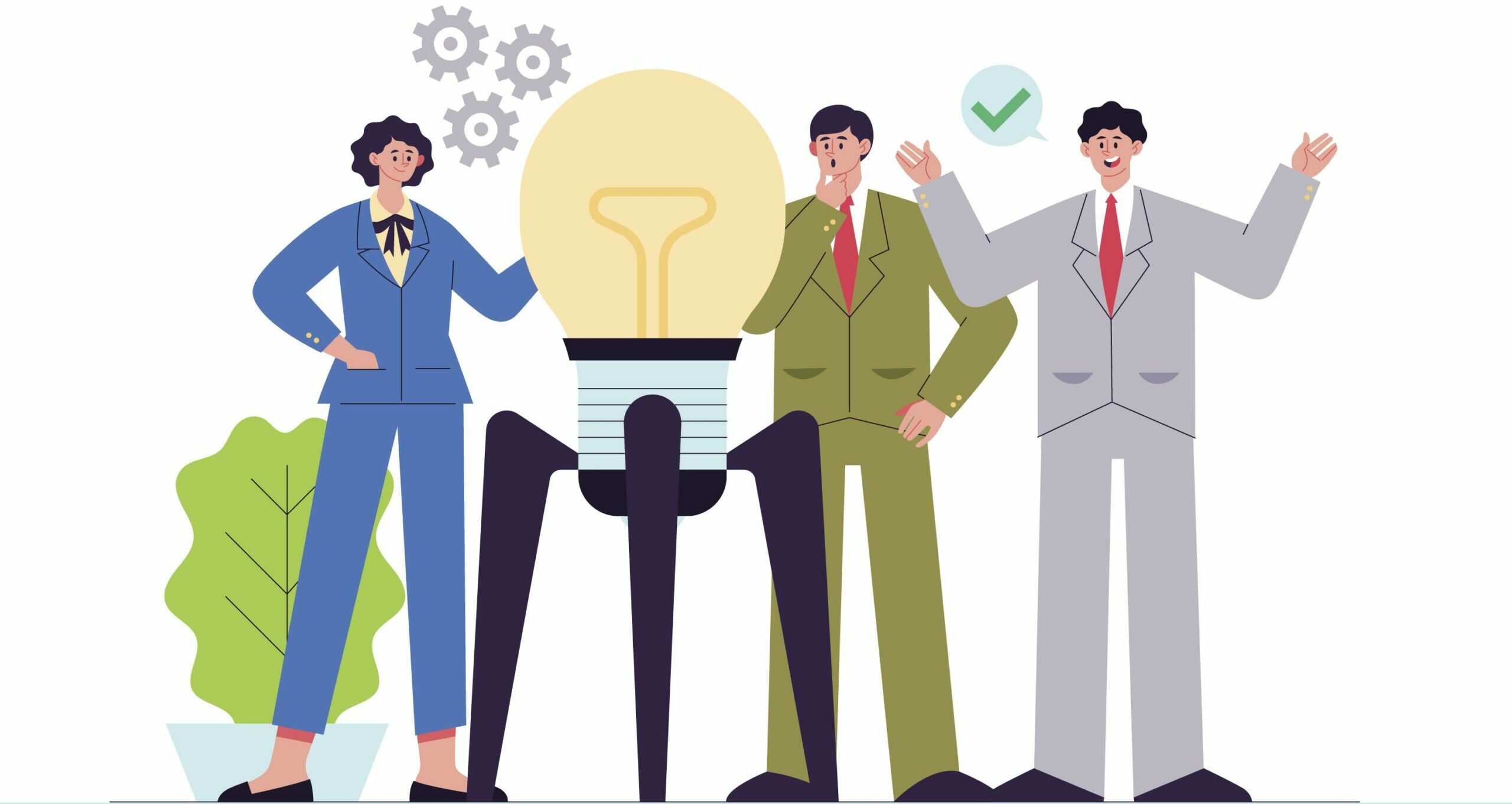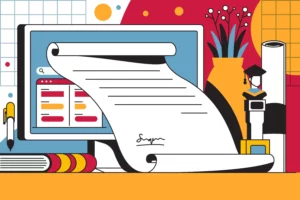Imagine you’re about to start a cross-country road trip. You wouldn’t just get in the car and start driving without a map or a plan, right? In the same way, navigating agreements and deals in business without a solid strategy can lead to unexpected problems and obstacles.
Contract negotiation acts as the roadmap for businesses, helping them handle the complexities of agreements. This ensures that both parties reach their goals smoothly and successfully. Mastering contract negotiation is crucial in business, impacting everything from partnerships to procurement. Understanding its details is essential for achieving successful results.
Importance of Contract Negotiation

Building Strong Relationships
Contract negotiation goes beyond simply agreeing on terms; it’s about building strong and lasting relationships. Just as trust and respect are vital in personal relationships, they are also key in business negotiations. Establishing these elements helps ensure that agreements are successful and sustainable over time.
- Trust and Respect: Building trust and respect can make transactions smoother and lead to lasting partnerships. When both sides feel valued, they’re more likely to work together and find solutions that benefit everyone. According to a study by Forbes, effective contract management can help companies save up to 10% of their annual revenue.
- Future Collaborations: Successful negotiations often lead to new opportunities. Businesses are more likely to return to partners they trust, which helps build ongoing collaborations.
Mitigating Risks
Negotiations are not just about securing the best deal; they also play a crucial role in managing risks. A carefully negotiated contract helps protect both parties by preventing potential problems and disputes.
- Clarity and Precision: Using clear language in contracts reduces the chance of misunderstandings and legal issues. A report shows that 62% of contracts need to be renegotiated because terms are not well-defined.
- Contingency Planning: Thinking ahead about possible issues and including solutions in the contract helps avoid problems. This proactive approach can prevent conflicts and ensure smooth operations.
Related Blog: Contract Negotiation: Proven Strategies for Collaboration
Key Elements of Contract Negotiation

Preparation
Preparation is key to successful contract negotiation. Without careful preparation, negotiators risk entering discussions without the essential information and strategies.
- Research: It’s important to research the other party’s needs, strengths, and market standards. Knowing this information helps negotiators make strong arguments and counteroffers. For example, companies using contract management software can reduce approval times by 82%.
- Objective Setting: Clearly defining your goals and priorities helps you create a solid negotiation strategy. This clarity ensures you understand what you want to achieve and where you can be flexible.
Communication
Effective communication is essential in contract negotiation. It’s not only about what you say but also how you say it and how well you listen.
- Active Listening: This means really paying attention to what the other person is saying. It helps both sides understand each other better. Many negotiators believe that being well-prepared is very important.
- Clear Expression: Saying your points clearly helps avoid confusion. Using simple and direct language ensures that everyone understands the terms and is on the same page.
Bargaining
Bargaining involves exchanging offers and counteroffers, with finding a middle ground being crucial.
- Flexibility: Being willing to compromise allows for creative solutions that meet the needs of both parties. Studies show that businesses can achieve an average savings of 9% through better negotiation strategies (BCG).
- Tactical Concessions: Making strategic concessions can be useful. By conceding on less important issues, you can gain leverage on more critical points.
Closing the Deal
Closing the deal is the last step where the agreement is made official and binding.
- Final Review: A detailed review of the contract ensures that all terms are correctly stated. This helps avoid disputes and ensures both parties are happy with the agreement.
- Formalization: Making the agreement official through signatures and legal steps confirms the contract, making it legally binding.
Related Blog: 10 Tips for Contract Negotiation : Strategies Toward Success
Strategies for better contract negotiation

Strategy 1: Preparation and Research
Gathering Specific Information
Preparation is key to successful contract negotiation. Before you start negotiating, it’s important to gather and review information about the other parties, market conditions, and the type of contract.
- Market Analysis: Knowing the current economic conditions and industry standards can give you an advantage. This helps you understand what is reasonable and achievable in the contract terms. For instance, 80% of companies think they could improve their negotiation processes.
- Competitor Insights: Understanding what your competitors are offering and how they set up their deals can guide your own negotiation strategies. This knowledge can provide an advantage during negotiations.
- Internal Data: Use relevant data from your own business teams and legal departments, such as financial reports, supply chain issues, and past contract performance. This helps in setting realistic goals and identifying potential challenges.
Setting Key Objectives
Having clear key objectives helps you stay focused on your main goals during negotiations. Identify what you want to achieve with the contract, such as saving costs, getting better service, or including specific clauses that protect your interests.
- SMART Goals: Set goals that are Specific, Measurable, Achievable, Relevant, and Time-bound. This method ensures your objectives are clear and attainable.
- Prioritization: Determine and rank your goals. Knowing which objectives are essential and which ones you can be flexible on helps you stay adaptable while keeping your main goals in view.
- BATNA (Best Alternative to a Negotiated Agreement): Know your best alternative if the negotiation doesn’t go as planned. Understanding your BATNA helps you gauge whether to accept or reject an offer and strengthens your negotiating position.
Researching the Other Party
Understanding what drives the other party and any limitations they might have is key. Look into their business model, recent financial performance, and any recent changes that could impact their negotiating strength.
- Financial Health: A company’s financial situation can greatly affect its position in negotiations. Companies with financial problems might be more open to making concessions.
- Recent News: Keep up with the latest news about the other party, including any mergers, acquisitions, or changes in leadership. These factors can influence their priorities and strategies during negotiations.
Related Blog: 7 Expert Tips for Easy Contract Negotiation
Strategy 2: Effective Communication and Active Listening

Clear and Concise Communication
Good communication is crucial during contract negotiations. Misunderstandings and unclear terms can lead to disputes and delays in finalizing the agreement.
- Clarity: Use simple and direct language. Avoid technical terms that might confuse the other party. Clear communication ensures that everyone understands the contract terms.
- Documentation: Keep a record of all discussions and agreements as they happen. This helps maintain an accurate history of the negotiation and prevents future issues.
Active Listening
Active listening means really focusing on what the other person is saying and understanding their viewpoints and concerns. This approach helps build mutual understanding and find creative solutions.
- Empathy: Show that you understand the other person’s interests and challenges. This helps build trust and encourages a cooperative environment.
- Clarification: Ask questions to make sure you understand the other person’s position clearly. This avoids misunderstandings and helps find common ground.
Building Rapport
Building rapport with the other party can make negotiations go more smoothly and lead to better results.
- Common Interests: Find and highlight shared goals. Focusing on mutual benefits helps create a sense of teamwork rather than opposing sides.
- Professionalism: Keep a professional attitude during negotiations. Being respectful and courteous strengthens the business relationship and sets the stage for future collaborations.
Related Blog: 5 Situations When Negotiation Isn’t Advisable
Strategy 3: Flexibility and Adaptability

Being Open to Compromise
Flexibility is key in contract negotiation. Sticking rigidly to your position can cause deadlocks, while being willing to compromise can lead to agreements that benefit both sides.
- Trade-offs: Look for areas where you can make concessions. Giving up on less important points can help you get more of what you need on crucial issues.
- Creative Solutions: Be open to finding creative solutions that meet everyone’s needs. This can lead to unique agreements that might not have been thought of at first.
Adapting to Changing Dynamics
Negotiation dynamics can shift quickly, so being adaptable is key to handling new information and changing situations effectively.
- Real-time Adjustments: Be ready to change your strategies based on new information during the negotiation. This flexibility helps you take advantage of opportunities and manage risks.
- Scenario Planning: Think ahead about different possible outcomes and have backup plans ready. This preparation helps you keep things moving smoothly, even when unexpected challenges arise.
Leveraging Technology
Using technology can make the negotiation process more efficient and effective.
- Contract Management Software: Tools like CLM software can simplify contract administration and keep track of all changes and documents accurately.
- Collaboration Platforms: Platforms that allow real-time communication and document sharing can make negotiations smoother, especially when dealing with complex contracts and multiple parties.
Related Blog: How to Reduce Contract Redlining: Embrace Contract Templates
Common Challenges in Contract Negotiation

Miscommunication
Miscommunication can disrupt negotiations and result in disputes. To prevent misunderstandings, it is crucial to communicate clearly and effectively.
- Language Barriers: Overcome language barriers by using simple and clear language. If needed, use interpreters or translators to ensure accurate communication.
- Documentation: Keep a written record of all discussions and agreements. This provides a reference and helps avoid disputes.
Unrealistic Expectations
Unrealistic expectations can cause frustration and deadlocks in negotiations. It’s important to set goals that are practical and achievable.
- Market Research: Do your research to set realistic expectations. Knowing industry standards and benchmarks helps you make better decisions.
- Flexibility: Be ready to adjust your expectations as negotiations progress. Being flexible is essential for finding solutions that work.
Related Blog: Master Contract Redlining: What is it and How to do It?
The Role of Emotions in Contract Negotiation

Emotions play a significant role in the contract negotiation process, influencing how negotiating parties interact and make decisions. Just like in personal relationships, feelings can impact the dynamics at the bargaining table. Understanding and managing these emotions can help in achieving a successful contract negotiation.
When emotions run high, it can affect the clarity of communication. For instance, if one party is frustrated or anxious, it might lead to miscommunications or aggressive bargaining tactics. Active listening and remaining calm are crucial in managing these emotions. By maintaining a composed demeanor, you can ensure that discussions remain focused on finding a mutually beneficial solution.
Emotional intelligence is vital in the negotiation process. It involves being aware of your own emotions and recognizing the feelings of others. This awareness helps in understanding the underlying interests of all parties and addressing pain points effectively. For example, if you sense that a negotiating party is hesitant, addressing their concerns with empathy can help build trust and lead to a more favorable outcome.
Stress is another emotional factor that can impact negotiations. High stress levels may lead to impulsive decisions or strained interactions. Techniques such as deep breathing, taking breaks, and preparing thoroughly can help manage stress and keep the negotiation on track. It’s essential to focus on the key objectives and avoid letting emotions cloud your judgment.
Overall, emotions are a natural part of business negotiations. By developing strong contract negotiation skills and applying effective negotiation tactics, you can navigate these emotional challenges and reach the best possible outcome. This approach not only helps in achieving a well-balanced final contract but also strengthens the business relationship between the negotiating parties.
Related Blog: Contract Redlining: 5 Essential Tips for Effective
The Impact of Cultural Differences on Contract Negotiation

Cultural differences significantly influence the contract negotiation process, especially in international business agreements. Understanding these differences can help navigate diverse negotiation styles and ensure effective communication.
Each culture has its own negotiation practices and expectations. For instance, some cultures value direct and quick decision-making, while others may prioritize building relationships and engaging in lengthy discussions. Recognizing these differences helps in adapting your approach to fit the negotiation table’s dynamics.
In some cultures, business negotiations might involve a more formal approach, with a strong emphasis on written documents and legal clauses. In contrast, other cultures may focus on verbal agreements and trust-building. Knowing these cultural norms can help you tailor your negotiation tactics and avoid misunderstandings.
Cultural sensitivity is key to successful contract negotiations. Showing respect for the other party’s cultural norms and practices can foster goodwill and facilitate smoother negotiations. For example, understanding how different cultures handle negotiation and contract management can lead to more effective dispute resolution and better outcomes.
Effective communication is also essential when dealing with cultural differences. Clear and respectful communication helps in addressing any potential misinterpretations and ensures that all parties are aligned on the terms of the contract. This approach also helps in avoiding unnecessary conflicts and in achieving a binding contract that satisfies all parties involved.
By considering cultural factors and adapting your negotiation strategies accordingly, you can improve your chances of reaching a favorable and legally binding agreement. This not only helps in securing a successful contract but also enhances new business relationships and competitive advantage in the global market.
Related Blog: Best Contract Management Software: Top 10 CLM in 2024
CLM software for Contract Negotiation

Contract Lifecycle Management Software
In contract negotiation, Contract Lifecycle Management (CLM) software is a major improvement. Imagine CLM software as your advanced guide through a complicated process. It simplifies and smooths out the contract negotiation process, making it more efficient and reducing the chance of mistakes.
Automating Tasks and Improving Efficiency
CLM software automates many routine tasks in contract management. It handles everything from drafting to tracking changes smoothly. Automation cuts down on manual work, reduces mistakes, and speeds up the negotiation process. For example, CLM software can cut contract approval times by up to 82%, meaning that tasks that used to take weeks can now be done much faster.
Centralized Document Repository
A key feature of CLM software is its centralized storage for documents. Instead of searching through numerous emails or different file versions, everything is kept in one secure place. This makes it easy to access contract drafts, clauses, and updates, and ensures that everyone is using the same information. This central system improves teamwork among negotiating parties and makes sure everyone is aligned.
Enhanced Collaboration and Communication
CLM software makes it easy for teams to communicate and work together in real time. Parties involved in negotiations can comment on, revise, and track changes directly on the platform. This instant interaction helps solve problems quickly and keeps negotiations on track. Features like version control and audit trails make sure all changes are recorded and clear, improving transparency.
In short, CLM software makes contract negotiation easier, more efficient, and clearer. By automating tasks, central storage, and improving teamwork, this software helps businesses get better results and build stronger relationships.
Conclusion
Contract negotiation is a crucial skill in business. It involves creating strong relationships, reducing risks, and handling complex legal issues. By grasping the main elements and strategies for successful negotiation, businesses can reach agreements that benefit both parties and build lasting partnerships.
Technology, such as CLM software and collaboration platforms, can make the negotiation process more efficient and effective. By using best practices and getting expert advice, businesses can handle the challenges of contract negotiation and achieve positive results.
FAQs
What is the most important aspect of contract negotiation?
The most important aspect of contract negotiation is preparation. Doing thorough research and setting clear goals are essential for a successful negotiation.
How to avoid miscommunication during contract negotiation?
To avoid miscommunication during contract negotiation, focus on clear and effective communication. Use simple language, keep a record of all discussions, and ask for clarification when needed to prevent misunderstandings.
What are the benefits of using CLM software in contract negotiation?
Using CLM software in contract negotiation offers several benefits:
- Automation: CLM software automates repetitive tasks, reducing the time and effort needed for negotiation processes.
- Centralized Repository: It provides a single, organized location for all contract documents, making it easier to access and manage information.
- Enhanced Collaboration: The software improves collaboration among team members by allowing them to work together seamlessly on contract negotiations.
Overall, CLM software increases efficiency and accuracy during contract negotiations, helping streamline the process.
How can flexibility improve contract negotiation outcomes?
Flexibility can enhance contract negotiation outcomes by encouraging creativity and problem-solving. When parties are open to adjusting their positions, they are more likely to find solutions that benefit everyone involved. This approach helps maintain positive relationships and leads to more successful and mutually agreeable agreements.





